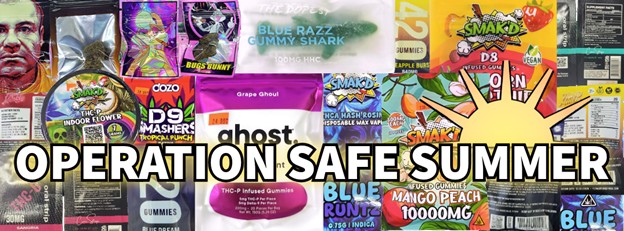TALLAHASSEE, Fla. — Florida Agricultural Commissioner Wilton Simpson announced Monday that more than 85,000 illegal hemp products have been seized in the first three weeks of a statewide enforcement initiative targeting child safety violations.
The crackdown, dubbed the “Operation Safe Summer,” is led by Florida Agricultural Consumer Services (FDACS), and focuses on HEMP retailers and manufacturers across the state. This operation is intended to enforce recently updated rules designed to prevent the product from being sold or packaged in a way that appeals to children.
“Florida does not tolerate the sale of dangerous and illegal hemp products that put children at risk,” Simpson said. “We will continue to enforce the law proactively, hold bad actors accountable and benefit the safety of our Florida families.”
The total seizures are as follows:
Week 1: 38,861 PackagesRemove Week 2: 40,796 PackagesRemove Week 3: 6,024 PackagesRemove Total: 85,681 Illegal Hemp PackagesRemove from 40 Counties
The enforcement effort follows a change in the rules enacted on March 12, 2025, which strengthens packaging, labeling and marketing standards for hemp and hemp extrato products aimed at human consumption. Important updates include essential child resistant packaging, stricter labeling requirements, and limitations on visual elements that may attract children, such as cartoon characters and animal shapes.
The state also requires a certificate of analysis that discloses THC content and confirms the lack of contaminants and limitations on color additives and marketing techniques.

Since FDACS launched these enforcement efforts in July 2023, the department said it has seized more than 750,000 illegal hemp packages statewide.
The new rules originated from Senate Bill 1676 and were passed at the 2023 legislative meeting. That summer, FDACS launched its largest inspection sweep to date, visiting over 700 businesses in all 67 counties and removing more than 83,000 packages deemed particularly harmful due to minors or THC’s powerful complaints.
According to FDACS, enforcement will continue throughout the summer, with businesses that do not comply with the risk of administrative penalties continuing.


